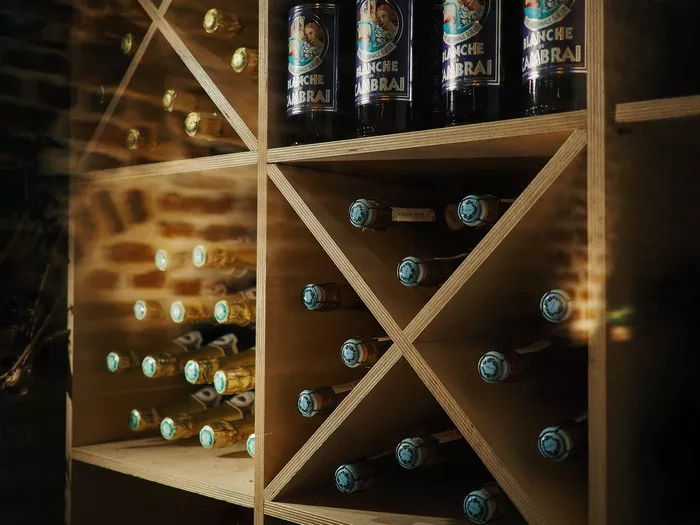In a commendable effort to address a pressing sustainability issue within New York State’s wine industry, three student teams from the Cornell SC Johnson College of Business are collectively exploring solutions for the reuse of wine bottles.
These undergraduate students are employing the principles of “design thinking,” a systematic approach to problem-solving, as they tackle this ecological challenge. Their method involves specific customer discovery strategies and engagement with a diverse range of stakeholders, including redemption centers, wine enthusiasts, winery proprietors, and restaurant owners. The goal is to identify any potential obstacles and collaborative opportunities.
One of the teams, led by Kerwin Xu ’24, is working closely with Peter Saltonstall, co-owner of Treleaven Wines in Lansing, New York, who serves as the primary client for this project. Their objective is to assess the feasibility of implementing infrastructure for wine bottle washing, encompassing various aspects such as operational procedures, financial viability, and logistical aspects. Xu, a student at the Charles H. Dyson School of Applied Economics and Management, notes that their primary aim is to determine the practicality of such a system, not just for Treleaven Wines but for all wineries in New York State.
As part of their research, the students visited Treleaven Wines to gain firsthand insights into the winemaking process, including grape crushing equipment, wine casks, the bottling line, and storage facilities. This practical experience provided a valuable understanding of the intricate production processes involved in the wine industry.
Xu expressed his surprise at the significant space allocated to storing wine cases within the facility. This revelation offered a different perspective on the distribution of space for various production stages.
At the conclusion of the semester, Professor Brad Treat’s students will present their innovative ideas and potential solutions to Saltonstall and several other winery owners. The course is a part of the multiyear Grand Challenges curriculum, aligning with the United Nations Sustainable Development Goals. Treat emphasized the value of “learning by doing” in this endeavor, emphasizing that the answers to such real-world challenges cannot be found through simple online searches or AI solutions. The complexity of the issue underscores the numerous potential outcomes and the need for hands-on exploration.


